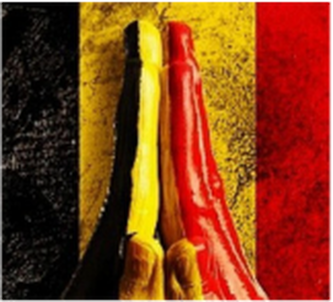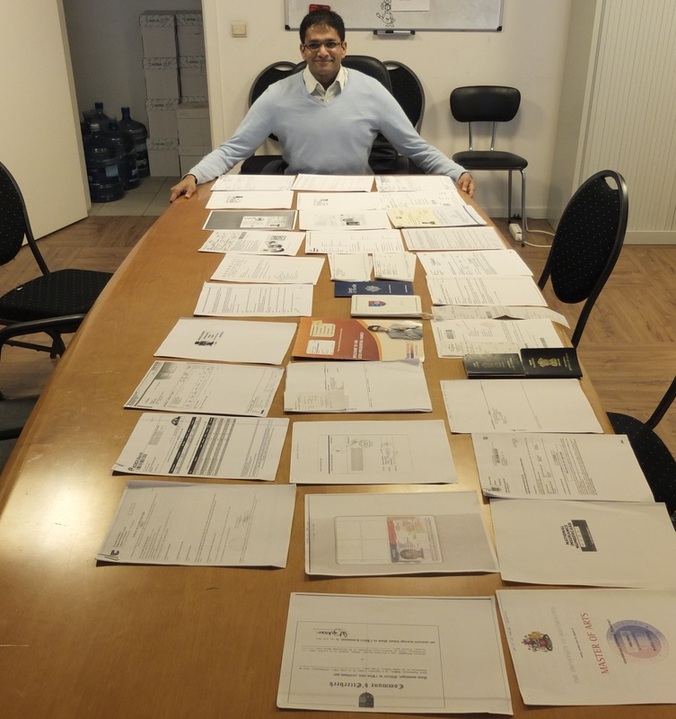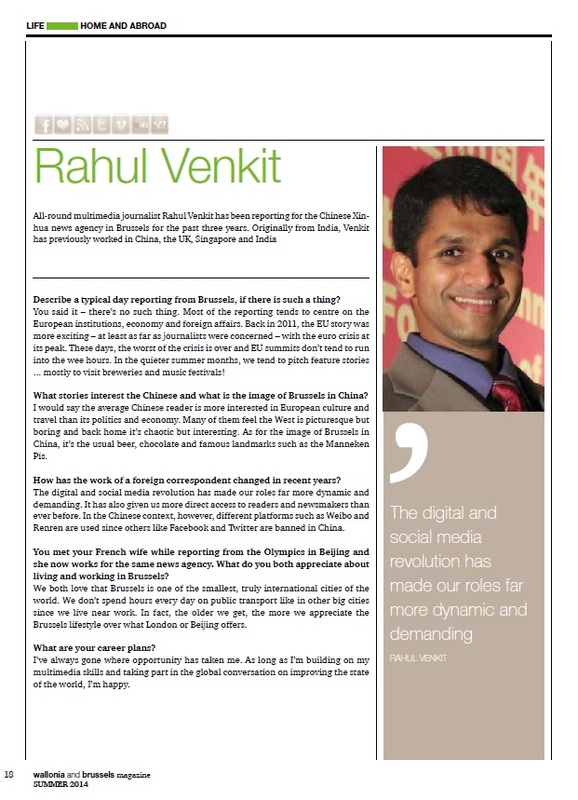
by Rahul Venkit
Belgium’s fall from grace on the global stage has been remarkable, but not surprising to long-time observers. From beer and chocolate, this medium-sized nation in the heart of Europe is increasingly associated with homebred terrorists and an impotent bureaucracy. Following the Paris terror attacks in November 2015, it was the international media that indulged in largely sensationalist Belgium-bashing.
Two months after the Brussels suicide bombings, there is now plenty of introspection at home – among Belgian officials, industry leaders and citizens. The “failed state” tag being thrown around is disingenuous, but there’s no smoke without a fire. Here’s an upshot on the uphill challenges that lie ahead for Belgium and on how much of the recent barbs are warranted.
A perfect storm?
In some ways, Belgium’s longstanding laissez-faire attitude to several matters seems to have come back to haunt the nation in a perfect storm.
For starters, decades of unchecked migration without enduring integration and equal opportunities have made this country of 11 million the highest per capita contributor of radicalized extremists in Western Europe. This had already been causing headaches for understaffed, uncoordinated Belgian intelligence forces.
And then the ghastly March 22 attacks happened, grinding the so-called capital of Europe to a halt. Brussels was accused of staying shut far too long, much to the detriment of the economy.
Businesses and the hospitality sector bled even worse than they did during the four-day shutdown of Brussels in November 2015. Public transport and airports were cautiously reopened, but not quickly enough for the estimated 10,000 jobs said to be under threat in the aftermath of the attacks.
And what the brainwashed, home-bred terrorists started, some groups of labor unions on wildcat strikes continued — by further paralyzing the country as it struggled to get back on its feet.
To this day, the smooth functioning of Belgian airports, infrastructure and government agencies in general is not guaranteed. In the past week alone, air traffic controllers, baggage handlers, lorry drivers and prison guards have all gone on strike, with the first of many nationwide, anti-austerity demonstrations planned on May 24.
Meanwhile, businesses, travellers and conference organizers are taking note, well aware that more reliable options exist. Rather than showing solidarity in a time of crisis, unions are positioning themselves to become the chief reason behind national shutdowns. In a twisted way, things in Belgium are returning to normal in this sense.
More than an image problem
Belgian Prime Minister Charles Michel this week declared Belgium was neither a failed nor a rogue state, but acknowledged its reputation had been hit and announced a 4 million euro public relations campaign to revitalize its image abroad.
However, Belgium’s current image may not be such an inaccurate reflection of reality. New details continue to emerge every day, but without a doubt Belgium’s security forces repeatedly failed to act on intelligence, with deadly consequences.
We know now that Belgian police had information in mid-2014 that the Abdeslam brothers Brahim and Salah planned to carry out a terrorist attack. That Salah had posted a photo of a Daesh flag on his Facebook page three weeks before the Paris attacks. That the Mechelen police chief intervened to ensure information, which could have led to the arrest of Salah in December 2015, was not entered into a national database because of a personal grudge against the informant. That Turkey arrested and deported Brussels airport bomber Ibrahim el-Bakraoui in July 2015, alerting he was a “foreign terrorist fighter.”
However, these and tens of other potentially life-saving leads were ignored. The reason? A chronically understaffed security and intelligence apparatus, authorities claim. Belgian federal police force unions point to a 22% staff shortage since 2001. They say several anti-terrorism officers are themselves sick of the constant criticism and are looking to transfer out to other roles. No one seems to take responsibility. The blame is always deflected among the clunky, fragmented official agencies and the lack of communication between them.
Far bigger cities seem to have more efficient structures. Mumbai with its 20 million residents and New York with 8 million have just one police force each. But the city of Brussels with its 1 million inhabitants has 6.
Everyone has power, no one responsible
Who is ultimately responsible for the current malaise? Power in Belgium is dispersed and divided by region, communes and language. Rarely are there central authorities overlooking and taking ownership of a task end-to-end. This uniquely Belgian quirk did ensure the country chugged along fine without a central government for a record 589 days back in December 2011, taking the dubious honour from war-torn Iraq.
But the “advantages” end there. Ordinarily, the country operates within its deep-seated linguistic and structural confines. Political parties purport to represent a language community, while divisions are well and truly cemented in Belgium’s infamously convoluted bureaucracy.
A case in point: Belgium has four parliaments and Brussels 19 town halls, each with its own mayor, even wielding the power to award citizenship. (One of them is Molenbeek that, contrary to popular belief, is neither a “suburb” of Brussels nor a “hotbed of terrorism.” Borderless, digital Europe means the disenfranchised in any town, city or country can be swayed by extremist ideologies both online and offline.)
So, does Belgium have it within itself mount a coherent counter-terrorism strategy when power has been devolved to such an extent that there is little overall accountability and — as importantly — sense of national solidarity? Heartfelt moments of national unity are rare in Belgium, unless its national football team the Red Devils are on the field.
Need for structural reforms
But if the dysfunctional nation is to persevere in its battle against terror and its inner demons, it will need to pull together with renewed resolve and embark upon on a long path to structural reform. Of late, top Belgian leaders and thinkers have called for re-launching the country as such. Belgian King Philippe too has called for unity.
Without functioning institutions, Belgium may very well spilt up down the line, which is coincidentally what the largest party in the federal government NVA (New Flemish Alliance) wants in the not-too-distant future. The response to the Brussels bombings being hampered by bickering politicians and self-entitled workers engaging in inopportune industrial action is one thing. But calling into question the larger European integration project is something the rest of the weary continent can ill-afford.
Given its hands are full dealing with a sluggish economy, migration, unemployment and a potential Brexit, the EU will be hoping Belgium can get its house in order. The process of healing and restoring cohesion in Belgian society cannot begin soon enough.
This article was first published on The Globalist.









 RSS Feed
RSS Feed